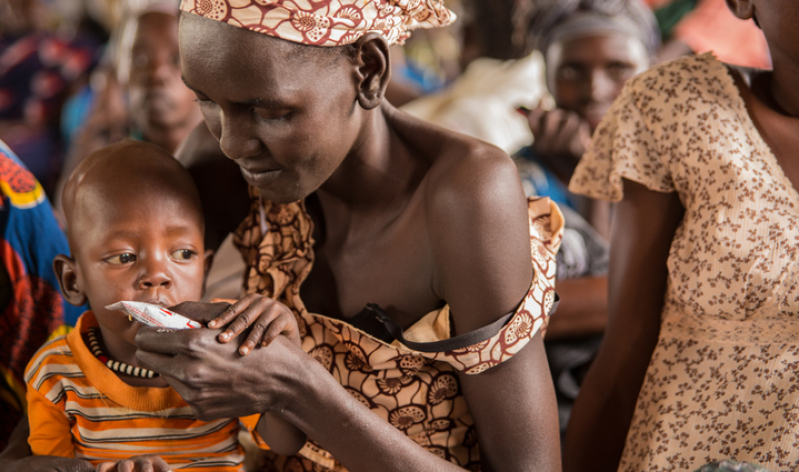
A Christian missionary working to help the 24 million people in East Africa dying of starvation has criticized the media for being so "distracted" by Donald Trump, they're failing to draw attention to the worst humanitarian crisis to hit the region since the Second World War.
Aid worker Paul Healy recently told the Irish Mirror that in his 20 years working with Trócaire, a charity set up by the Irish Catholic Church, he's never seen such devastation.
"The scale of the crisis is enormous. There are almost 24 million people facing the threat of starvation over the coming months," he told the outlet.
The UN has already officially declared a full-fledged famine in parts of South Sudan and called it the worst humanitarian crisis since 1945.
"This means that 20 percent of households are facing extreme food shortages, 30 percent of the population faces acute malnourishment and there are 2 hunger-related deaths per 10,000 people per day," notes the UN.
It's also warned that three countries - Somalia, Kenya and Ethiopia - will suffer mass death from food and water shortages if "prompt and sustained humanitarian intervention" doesn't happen soon.
But while these numbers are staggering, Healy said the crisis has received very little attention.
"People are distracted by Donald Trump and aren't paying attention to what is the biggest story in the world," he said. "There are 30 thousand people on the verge of starvation and it's not even getting news coverage. Trump is getting more for his total denial of climate change when people are on the verge of starvation due to such climate change. I cannot understand it."
The UN notes that these famines are caused by natural disasters like crop failures or droughts and exacerbated by the bloody wars and insurgencies raging in all four countries.
"While part of this is linked to the conflict with Boko Haram, it is also linked to the wider environmental impacts the region is undergoing from climate change," it notes.
In Kenya, Healy said he witnessed a young child, Meshak, whose upper arms were the same size as his thumb.
"Now that is deeply disturbing to any rational human being that has an ounce of human values, you would be disturbed by it," he said. "His mother had brought him to Trocaire's centre two months ago. He was dangerously malnourished."
Thankfully, after two months of treatment, the little boy is back to full health.
"It shows you what can be done when we can get food to these children, but there are literally hundreds of thousands of children like Meshak who aren't getting the aid they need," Healy said.
"You can cry all you like about it and shout but it seems that for some reason this time around the global community has not got the message."
He called on Christians around the world to act on behalf of millions in danger of starving to death and urged people to donate directly to Trócaire's east Africa emergency appeal at trocaire.org. All the money donated to this appeal is ring-fenced specifically for emergency aid in east Africa.
"It's really quite simple: the more money we get, the more lives we can save," he said.
Christian Aid's Head of Humanitarian Programmes for Africa, Maurice Onyango, said that his organization, like a number of Christian charities, is "reaching tens of thousands of people with life-saving assistance, but this is just the tip of the iceberg."
"If we are to avert an unprecedented famine in the region, then much more help is sorely needed," he said. "What is, today, a major crisis will tomorrow become a monumental catastrophe unless the international community find more funds to respond."
He continued: "Every day children, women and men starve to death, from lack of food and lack of water. In Kenya and Ethiopia, livestock are dying in their thousands, leaving pastoralist families with no animals, no food, no assets and no option but to hope and pray for help to come.'
He said: 'If the world wants to avert future catastrophes of this scale, we need to invest in helping communities become more resilient to disasters.'
Christian Aid launched a fundraising appeal for the East Africa crisis in February 2017.






